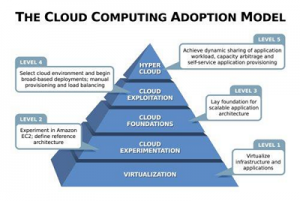Efficiently using the cloud to manage business operations like data storage and sharing, email, backup and recovery isn’t only cost-effective, but also organises your data management. It also takes away your need for IT hardware and personnel. With the cloud, your workers can easily access information and collaborate online anytime anywhere.
Best of all, without the hassles of managing and maintaining an in-house server, your company is able to focus on business. This is why cloud computing is becoming more popular every day. More and more people are storing and sharing data on the cloud as the day goes back.
But, while some companies have solved their IT problems using the cloud, the field, for some other businesspeople, can be confusing. You only need to consider the fact that an unrelenting number of cloud hosting providers are sprouting up here and there, and you will see why choosing the right cloud host and solution can be confusing for some people.
To manage the confusion, here are six important questions you need to consider when deciding on the provider and cloud computing package to elect for your company.
- Which cloud hosting solutions does your provider offer?
Before you can decide on the cloud solution to use, you first need to understand what you need from cloud computing. Is it simple data storage and sharing solution, perhaps, offered by Dropbox? A cloud-based email service like the ones from Google? A backup and recovery solution from Amazon? Or managed cloud server hosting with Umbrellar.nz for running your application?
It’s all about knowing your cloud computing needs and finding a cloud provider that offers them. Otherwise, you may end up spending more than you need opting in for cloud services that are useless to your company—this will defeat your financial purpose of embracing the cloud.
- How does your provider charge for their services?
This supports my first point. Only pay for what you use. It’s that simple.
Watch out for heavy upfront payments. Reputable providers often offer a pay-as-you-go pricing structure, with the option to include more services or scale when needed. How much you eventually pay per month will be dependent on the services used and the number of users per service.
- How secure is your provider’s cloud?
There is no harm in making sure that your provider’s approach to security is of stellar standard. You are not only trusting a cloud host with your company’s data, but also paying for your trust. So the safety of the data is your right.
A provider should be able to offer security in the form of anti-virus protection, firewalls, data encryption, regular audits of security, sophisticated user authentication, and even physical security against theft and vandalism, power failure, fire outbreak et cetera.
Concerning physical security, one of the best ways to make sure that your provider’s data centres are sufficiently protected from threats is by checking if they meet the Standards for Attestation Engagement 16 (SSAE 16)’s compliance.
- What if your provider loses your data?
Has the provider ever experienced data loss? This information can be easily obtained by googling the cloud company, since people affected by such an experience will have talked about their disappointment online.
Does the provider offer a service level agreement addressing data loss? Will they compensate their subscribers in the event of loss from their own end? Does the provider have a data redundancy strategy in place in order to minimise the chances of data loss?
These are questions you need to address before choosing a cloud provider.
- Can your provider’s cloud scale with your business needs?
Can you get extra storage space? Extra RAM? Extra hardware?
Most cloud providers offer various tiers of cloud packages, depending on the sizes and needs of their subscribers’ businesses. As a company experiences growth, the more data it will need to manage—thus its need for the cloud expands. Today, your company may have five employees. Tomorrow, the number could move up to ten workers. This means more people accessingyour company’s cloud.
Therefore, it is ideal to make sure that whichever provider you choose can easily offer cloud solutions that can scale with the growth of your business.
- How often does your provider experience downtime?
This is a very important question to address. If a cloud provider experiences downtime often, this implies that sometimes you and your employees will not be able to access your data. This can become a problem, especially during emergencies.
The truth is that every provider sometimes experiences downtime. The key is choosing one whose downtime percentage is as close to hundred percent as possible—99.95% upwards is ideal.








